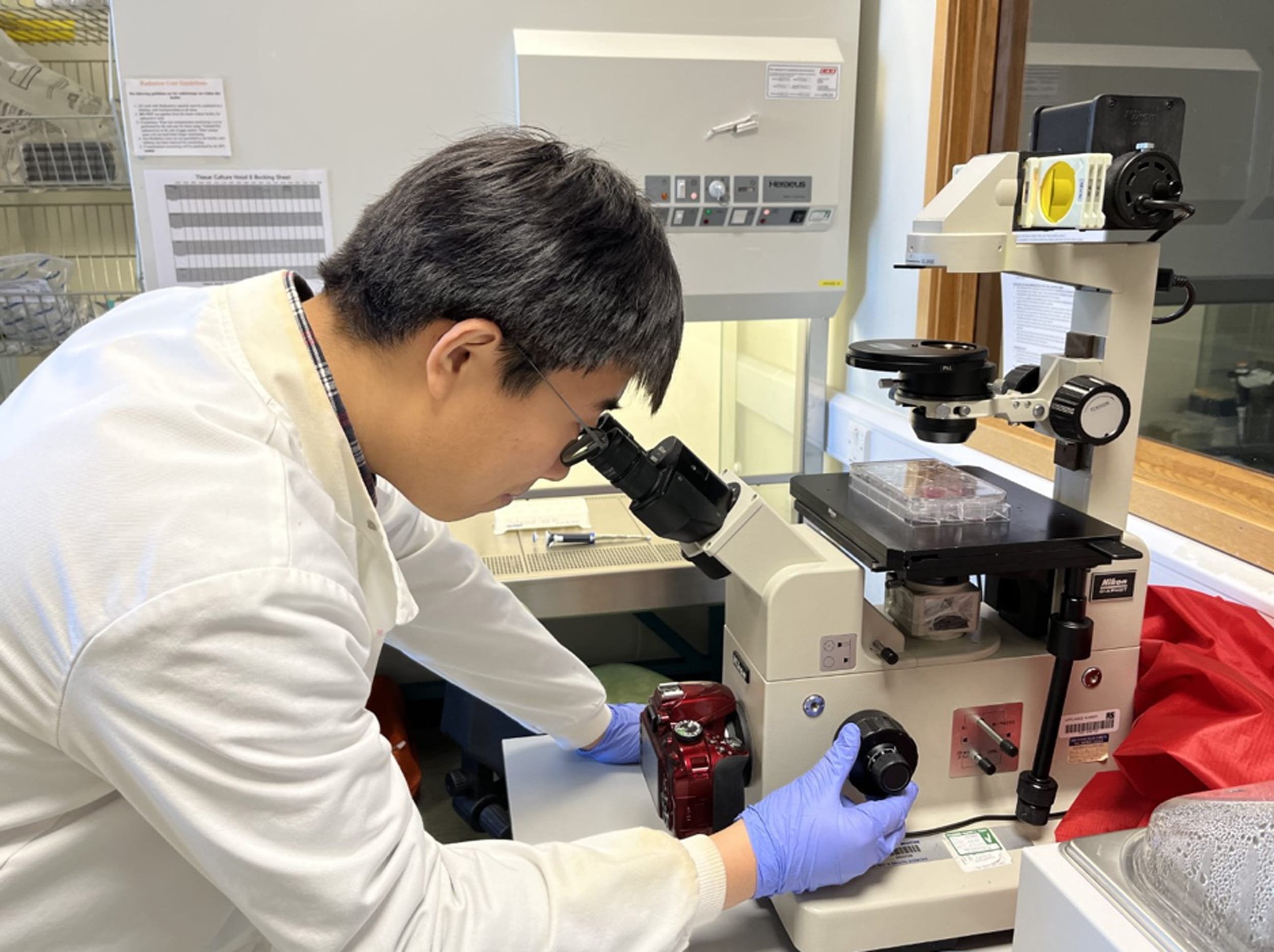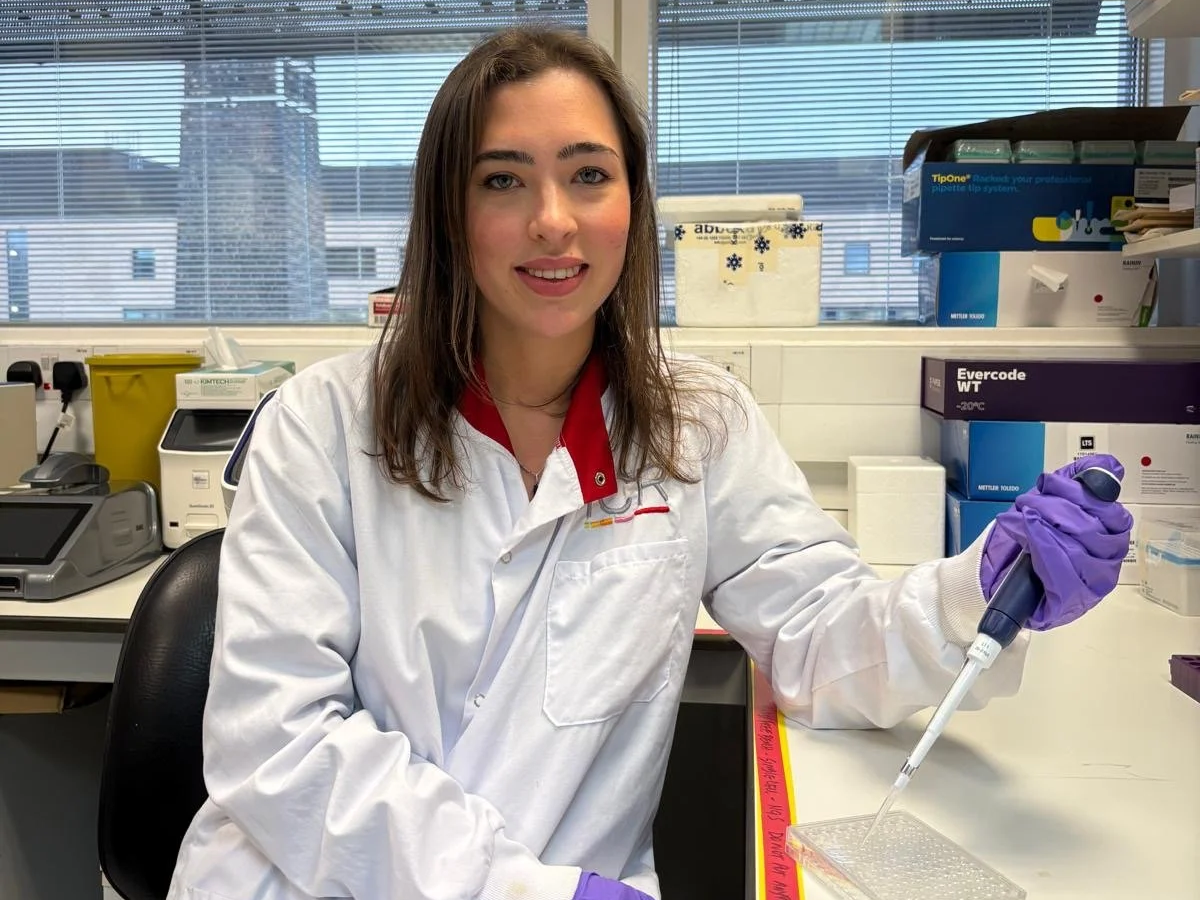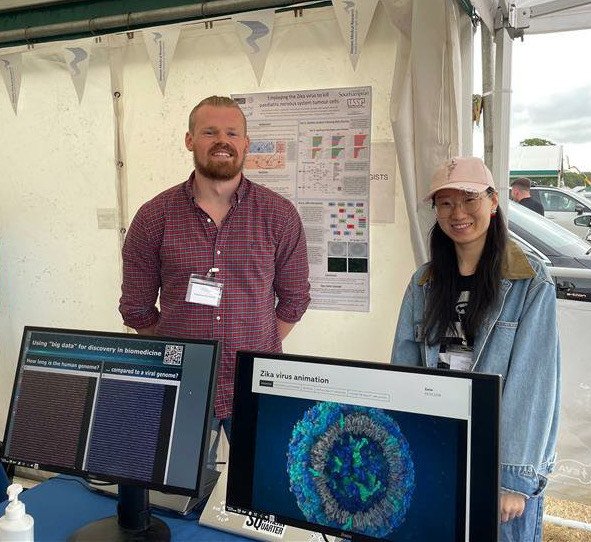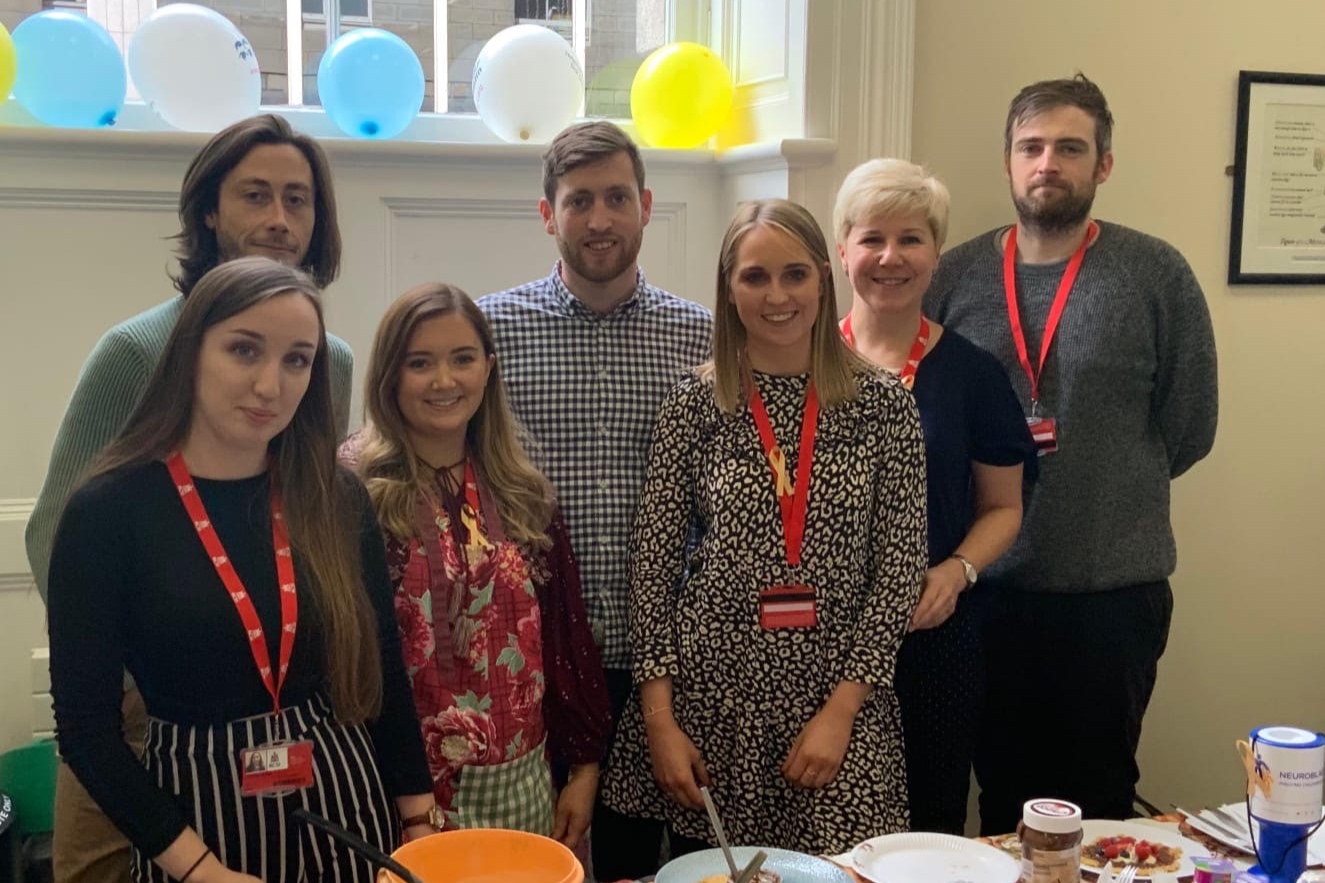
SMALL RESEARCH GRANTS REPORTS
Our small research grants are awarded throughout the year; these are monetary allocations of £5,000 or under to help researchers establish innovative projects. In 2022 we have awarded two, both coincidentally, to researchers at the University of Southampton.
Neuroblastoma UK has awarded three Innovation Grants, formally known as Small Grants, in 2025 and late 2024 to support fresh, early-stage research that could pave the way for better treatments for children with neuroblastoma.
In 2021, Neuroblastoma UK awarded £469,093 in research funding to an international team of leading clinician-scientists to explore how blood tests (biomarker testing) could be used in clinical trials to improve outcomes for children with neuroblastoma.
In 2023, Dr Gao, working with Prof Juliet Gray and Dr Zoë Walters at the University of Southampton, aimed to determine the role of natural killer cell- mediated anti-tumour effects in neuroblastoma, after treatment with EZH2. The objectives of the study were to look at the correlation between EZH2 protein expression and the surface expression of natural killer ligands in neuroblastoma cells, and to determine if the natural killer cells induced cytotoxicity that could be enhanced in the neuroblastoma cell lines with EZH2 inhibitors.
This year we reviewed the current results of the research initially funded by Neuroblastoma UK from 2010 to 2017. Our Symposiums over the last ten years have brought together researchers to share their work and highlight topics, examples are: new treatments, advances in differentiation therapy, genetic landscape of neuroblastoma , the role of MYC gene and micro RNA signatures.
Intensive chemotherapy used in the treatment for high-risk neuroblastoma does not cure all children and has significant side effects and long-term toxicity, so it is imperative that we continue to look for new treatments. One area is to improve the efficacy of immunotherapy. Anti-GD2 immunotherapy is now a mainstay in the therapy of neuroblastoma. Natural killer cells play a major role in the effectiveness of anti-GD2 immunotherapy and EZH2 alters the action of natural killer cells. This pilot study will investigate the benefit of combining EZH2 inhibitors and anti-GD2 immunotherapy.
Members of this team at Southampton discovered that the Zika virus can specifically infect and kill cells in childhood brain tumours, and it has shown some promise in the laboratory with aggressive neuroblastoma. The funded research will look into the appropriateness of using this virus to specifically infect and destroy cancer cells without destroying normal cells; an approach known as oncolytic virotherapy. These are attractive potential treatments for childhood cancers as they typically have low toxicity and are well tolerated.
Thanks to your kind donations, Neuroblastoma UK is pleased to announce two research grant awards totalling £683,477, with a focus on improving treatment for children with advanced stages of the disease.
The grants, which include a donation of £15,000 from charity Friends of Rosie, will enable scientists to progress their research and develop safer, non-invasive and more effective treatment for children with the disease.
Thanks to funding from Neuroblastoma UK, post-doctoral research associate Dr Perla Pucci was recruited to join a neuroblastoma research team at the University of Cambridge.
The team, led by Dr Suzanne Turner, are looking to develop more personalised treatment for children with ALK-positive neuroblastoma. Perla tells us more about how the project has progressed.
In 2019, Neuroblastoma UK provided a grant of £143,648 to Dr Andrew Stoker and his team at University College London.
The team want to investigate how a particular protein that is well known to promote tumours in several cancers including breast, lung and prostate cancer works in neuroblastoma cells.
In 2019, we awarded £236,141 to Dr Suzanne Turner at the University of Cambridge, as part our 2019 research grant round.
Here we meet Dr Turner and find out more about her three year research project aimed at improving the effectiveness of ALK inhibitors for children with neuroblastoma.
In 2019, we awarded nearly £5,000 to Prof Robert Falconer and Xiaoxiao Guo at the University of Bradford.
This research grant enabled them to explore the potential for a ketogenic diet to enhance neuroblastoma therapy. Let’s find out more.
With Children’s Cancer and Leukaemia Group (CCLG), we awarded £72,656 to Dr Anestis Tsakiridis at the University of Sheffield.
The team are working to understand how human trunk neural crest cells become cancerous. This research could lead to further investigations to stop neuroblastoma cells from developing.
Dr Tsakiridis shares his motivations, why team work matters and tells us more about his exciting work.
In 2019, as part of our Small Grants programme, we awarded £5,000 to Dr Zoë Walters at the University of Southampton.
Dr Walters tells us more about her research into the treatment of neuroblastoma, why she is passionate about cancer research and how she hopes to make a difference to children with neuroblastoma.
We have joined forces with the Bradley Lowery Foundation to provide funding of £153,369 to the Laman group.
The team hope to develop a new approach in targeting the protein N-Myc, a well known cause of some of the worst neuroblastomas. Dr Laman answers our questions about her role, her team and how camels may help get us a step closer to a cure for neuroblastoma.
New research published in the journal Cancer Research, with funding from Neuroblastoma UK, Cancer Research UK and Children with Cancer UK has helped create a new mouse model to help study neuroblastoma, a rare and aggressive childhood cancer.
We are providing funding of over £116,000 to Dr Olga Piskareva and her team at the Royal College of Surgeons in Ireland (RCSI).
In this project, Dr Piskareva aims to use 3D printing technology to engineer a novel experimental model and study the biology, and subsequent treatment of, neuroblastoma. “Thanks to funding from Neuroblastoma UK and its dedicated supporters...we hope to develop more effective treatments for children with neuroblastoma, with more tolerable side-effects.”
Earlier this year, Neuroblastoma UK joined forces with childhood cancer charities Niamh’s Next Step and The Bradley Lowery Foundation to fund more vital research into neuroblastoma.
“...If this project is successful, it would hopefully lead to the subsequent development of a clinical antibody, for trial in children with neuroblastoma…”
Neuroblastoma UK will continue to fund more crucial laboratory research that is hoped, will lead quickly to new treatments to cure children with neuroblastoma.
Advances in Neuroblastoma Research
Advances in Neuroblastoma Research is a biannual international conference providing a forum for leading neuroblastoma experts across the world to meet and discuss latest developments in basic research and clinical applications of their work.
The 2008 conference was held in Japan during May. Neuroblastoma UK awarded a travel bursary for a UK researcher to attend in order to present his work and to provide a report on the conference.


















Researchers from the University of Sheffield and St. Anna Children’s Cancer Research Institute have created a model designed to investigate the origins of neuroblastoma, a cancer primarily affecting infants and young children. The findings offer hope for the creation of tailored treatments which treat aggressive neuroblastomas and minimise the adverse effects experienced by patients from existing therapies.